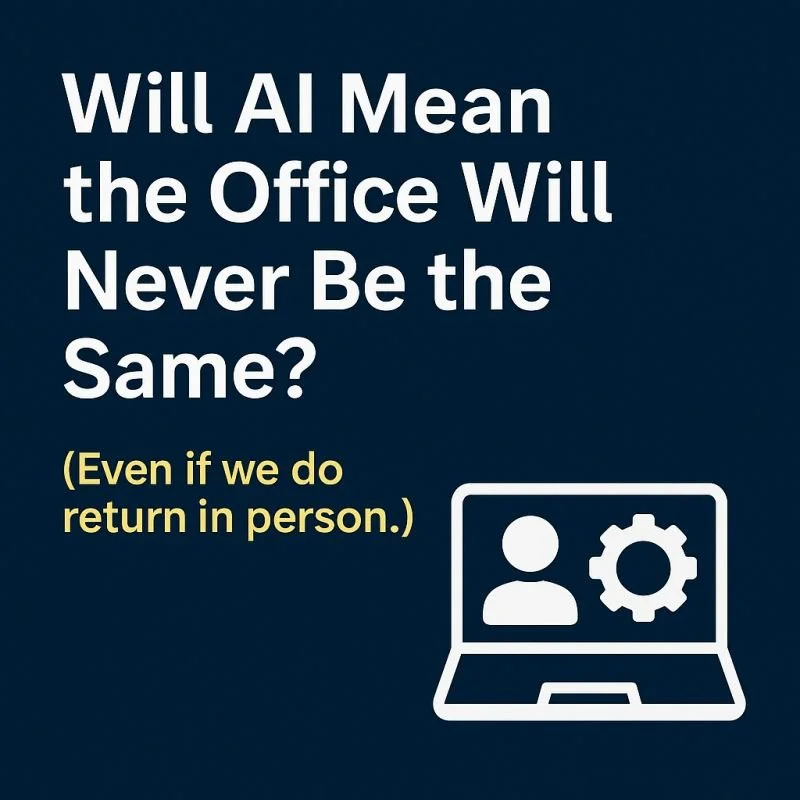Will AI kill the office?
In the ever contested Office vs Home-working, I selfishly fall more towards a preference for office working (for now at least). I prefer being around people, I don’t have a school run to contend with, and I find it much easier to focus when I know I can’t procrastinate by doing things in the house.
With the latest round of “we’re all going back to the office” discussions taking place, I've been considering what that office could look like if it’s true.
One of the things I’ve always loved about being in an office has been the tendency (especially in meetings) to shut our laptops and communicate as people, something which I feel has been harder since Covid. We’re communicating less in person, and finding it harder when we do.
With the ever-discussed boom in AI, we’re also likely to become more reliant on technology-mediated answers to questions, something which can work well while communicating online, but will be very different in person - perhaps even seen as rude, especially when compared to naturally flowing conversations.
There’s also likely to be generational splits. Older colleagues I’ve worked with have grumbled when I’ve opened my laptop to check something I’m saying – scared of giving an incorrect statement. Sometimes it’s better to be present than to be right.
The next generation are early adopters of AI. not just as a novelty, but as a core learning tool. A recent Common Sense Media report outlined that 40% of 2 year old's have their own tablet, rising to 58% by the time they are 4 years old. Nearly 30% of children aged 0–8 have already used AI for learning and according to an article in the NY Post, usage for homework has doubled among teens aged 13–17 in a single year—from 13% in 2023 to 26% in 2024.
Upcoming generations are likely to enter the workforce with a semi-symbiotic relationship with AI – using it to moderate conversations.
This clearly has pros and cons, with a likely increase in factual contributions, but a likely stifling of creativity – “I’m not sure AI agrees, maybe we should just bench that” and ‘fail-fast’ ideation (sometimes it’s good to be wrong early), or an increase in the prevalence of ideas psychologically ‘anchored’ on the pre-generated ideas brought to, or found within the meeting.
It’s also likely to lead to a change in the way that we carry out said meetings. Perhaps breaks will need to be incorporated, with small problem sprints before re-convening to share responses (and perhaps which prompts and engines have been used to generate them).
Sadly, I can’t see how human-only meetings would be seen as acceptable and in some workplaces these would be considered too risky. Such meetings would presumably be followed by frantic follow-up searching (but perhaps we already did this with google). Either way, it's going to be very different.
